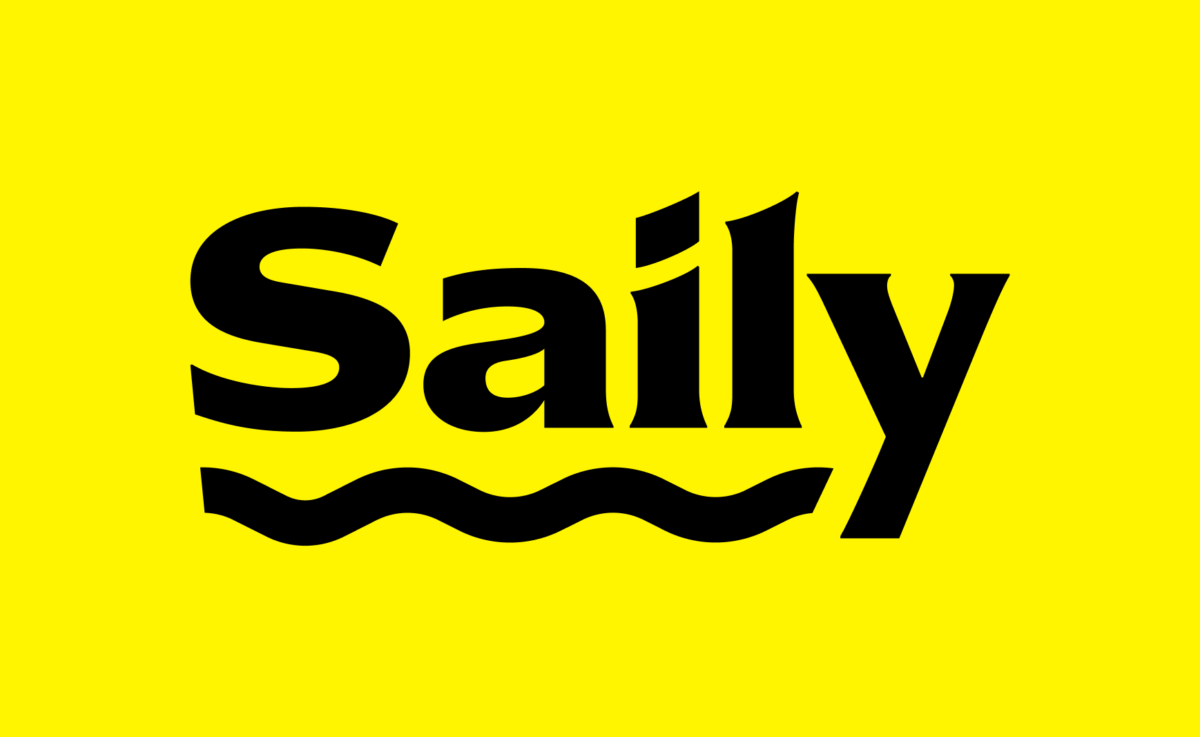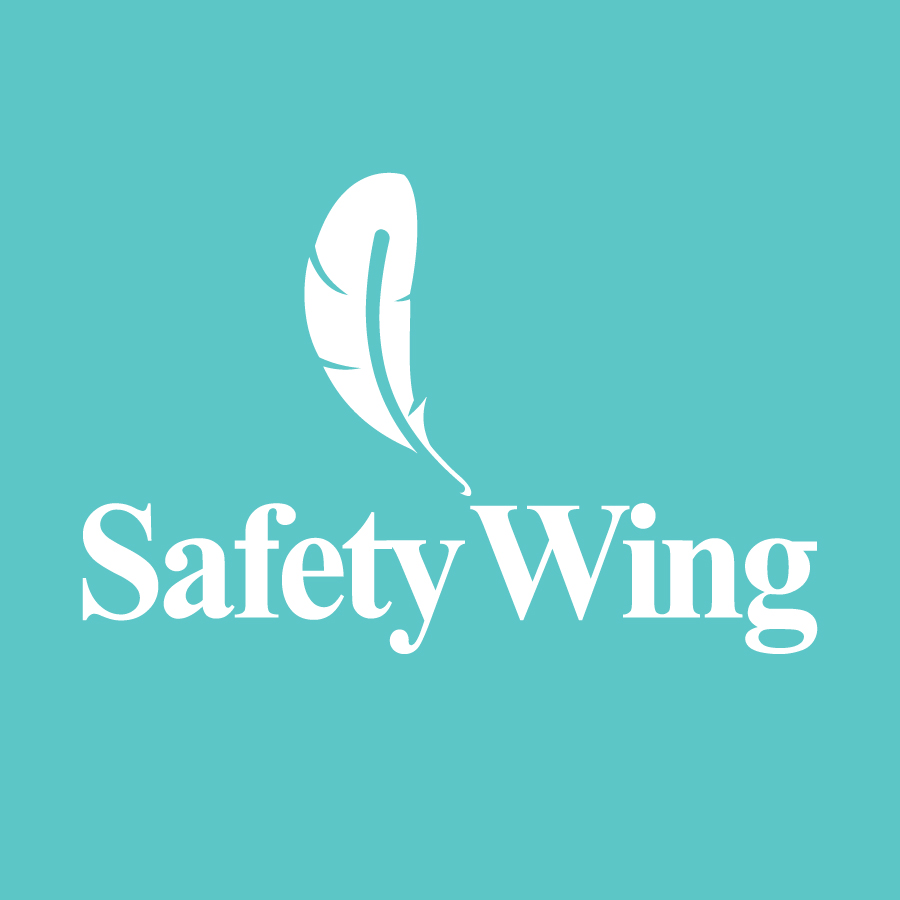
Digital Nomads – Best Places in Poland
The 5 Best Places for Digital Nomads in Poland
Poland has emerged as a top destination for digital nomads, offering a mix of affordable living, expat communities, and excellent internet connectivity. Each city boasts unique charm and practical amenities, making them ideal bases for remote work. In this article, you’ll explore the 5 best places in Poland for digital nomads.
You’ll get insights into the best times to visit, average Wi-Fi speeds, and what each destination is best known for. No matter if you’re looking for a lively urban environment or a peaceful retreat, Poland has something to offer.
My name is Shannon 🙂
I have been travelling full time for the last decade. I have seen and experienced the most wonderful and mysterious things and incredibly excited to share these adventures with you. I thank my lucky stars that i have found myself in a position that I can give you all the tips and tricks needed for a seamless trip. So pack your bags and lets go!
Affiliate Disclosure: Some of the links on our site are affiliate links, meaning, at no additional cost to you, we may earn a commission if you click through and make a purchase. This helps us to continue providing valuable content and supports our efforts in bringing the travel community together. We only recommend products and services we believe in and think you’ll find useful. Complete details are included in our affiliate disclaimer. Thank you for your support!
In a Hurry? Here's our Key Info for This Article
- Krakow is ideal for history buffs and offers strong WiFi speeds
- Wroclaw is known for its lively student population and affordable living costs
- Poznan boasts a balance of workspaces and leisure spots
- Gdansk is perfect for those who love coastal views and has reliable connectivity
- Lublin offers a quieter, more affordable option for digital nomads
Stay Connected
Things to Do
Essential Apps
Surfshark VPN
Stay safe online and continue accessing all your services just like back home.
Budget Tips
What is a Digital Nomad?
A digital nomad is someone who leverages technology to work remotely while exploring new places. Unlike traditional office workers, you’re not tied to a specific location. Your office can be a beach in Bali one week and a café in Barcelona the next. This lifestyle offers the freedom to live in different cultures and enjoy varied experiences while maintaining a career. To make it work, you’ll need reliable internet and a good understanding of local resources. For instance, if you’re interested in exploring Scandinavian culture, check out Finlands digital nomad hotspots for some prime spots to set up your mobile office. The combination of flexibility and adventure makes the digital nomad lifestyle increasingly appealing.
Other Places to Work Remotely in Europe
The 5 Best Places for Digital Nomads in Poland
| Destination | Best for | Best Time to Visit | Average Wifi Speeds |
|---|---|---|---|
| Warsaw | Networking and coworking spaces | May to September | 50 Mbps |
| Krakow | Historical charm and cafes | April to October | 45 Mbps |
| Wroclaw | Startups and tech events | May to September | 55 Mbps |
| Poznan | Low cost of living | April to October | 40 Mbps |
| Gdansk | Coastal views and relaxed vibe | June to August | 35 Mbps |
1. Warsaw
Poland’s capital, Warsaw, is a city that has risen from the ashes of history to emerge as a metropolis with a cultural tapestry. It’s a haven for digital nomads looking for affordable living in Poland with excellent internet connectivity.


Top Attractions
Warsaw offers a wealth of attractions that cater to various interests. The Royal Castle, once the residence of Polish monarchs, stands as a testament to the city’s resilience and architectural beauty. The Warsaw Uprising Museum provides a poignant look into the city’s wartime history, offering a deeply moving experience. For those who appreciate green spaces, Łazienki Park is a sprawling oasis with lakes and classical statues. The Palace of Culture and Science, a gift from the Soviet Union, offers panoramic views of the city from its observation deck. Don’t miss the POLIN Museum of the History of Polish Jews, which narrates the thousand-year history of Jews in Poland.
Best Time to Visit
The ideal time to visit Warsaw is late spring (May-June) or early autumn (September). These periods offer mild weather and fewer crowds, making it easier to explore the city. Winter can be harsh, but it brings the charm of Christmas markets and festive lights.
Local Cuisines
Warsaw’s culinary scene is both hearty and diverse. Polish cuisine is celebrated for its comfort food, which is perfect for the cold months.
– Pierogi: These are dumplings stuffed with a variety of fillings such as meat, cheese, potatoes, or seasonal fruits.
– Bigos: Known as hunter’s stew, it’s a savory mix of sauerkraut, fresh cabbage, and various meats.
– Żurek: A sour rye soup often served with sausage and a boiled egg.
– Pączki: Polish doughnuts filled with jam or other sweet fillings, usually enjoyed on Fat Thursday before Lent.
You can also enjoy the convenience of Warsaw’s delivery services, if you want a cozy night in.
Budgeting for Warsaw
Warsaw is relatively affordable compared to other European capitals. Expect to spend around $50 per night for mid-range accommodation. A meal at a mid-tier restaurant can cost approximately $15-$20. This makes it one of the best places for digital nomads in Poland looking for affordable living options.
2. Krakow
Krakow, Poland’s cultural capital, boasts a history and a atmosphere. This medieval city seamlessly mixes ancient architecture with modern amenities, making it a must-visit for any digital nomad.


Top Attractions
Krakow is brimming with captivating landmarks and attractions. The historic Wawel Castle, perched on a hill overlooking the Vistula River, offers a glimpse into Poland’s royal past. The Main Market Square, one of the largest medieval squares in Europe, is the heart of the city, surrounded by stunning buildings like the Cloth Hall and St. Mary’s Basilica. For history enthusiasts, a visit to the Auschwitz-Birkenau Memorial and Museum provides a sobering reminder of the atrocities of World War II. Nature lovers will appreciate the beauty of the Planty Park, which encircles the Old Town, offering a peaceful retreat from the urban hustle. Don’t miss the underground wonders of the Wieliczka Salt Mine, a UNESCO World Heritage Site, showcasing intricate salt sculptures and chapels.
Best Time to Visit
The best time to visit Krakow is during the spring (April to June) and autumn (September to October) when the weather is mild, and the tourist crowds are thinner. Winter can be cold but offers a magical Christmas market experience.
Local Cuisines
Krakow’s culinary scene is a delightful mix of traditional Polish dishes and modern gastronomy. Here are a few must-try dishes:
– Pierogi: Polish dumplings stuffed with various fillings like cheese, potatoes, and meat.
– Zapiekanka: Open-faced baguette with mushrooms, cheese, and various toppings.
– Bigos: A hearty stew made with sauerkraut, fresh cabbage, and various meats.
– Obwarzanek: A local bagel-like bread, often sold by street vendors.
Budgeting for Krakow
Krakow is relatively affordable for digital nomads. Accommodation can range from $20-50 per night for a mid-range hotel or Airbnb. A meal at a mid-tier restaurant will cost around $10-15. For more affordable European destinations, you might also want to explore Croatia’s digital nomad scene.
3. Wroclaw
Wroclaw, located in western Poland, is a city that effortlessly combines historic charm with a modern lifestyle. Known for its picturesque Market Square and hundreds of bridges, it’s a must-visit for any digital nomad in Poland.


Top Attractions
Wroclaw is brimming with attractions that cater to a diverse range of interests. The Rynek, or Market Square, is the heart of the city and a perfect spot for people-watching while enjoying a coffee. The Gothic-style Town Hall stands as a magnificent centerpiece here. For a dose of culture, head to the Panorama of Racławice, a monumental cycloramic painting that depicts the Battle of Racławice. History buffs will appreciate the Wroclaw Cathedral and its stunning architecture. Don’t miss the Wroclaw University, particularly the Aula Leopoldina, an opulent Baroque hall. For a touch of whimsy, look for out the city’s famous dwarf statues scattered throughout the streets. Each one has a story and adds a playful element to your explorations. Wroclaw, is the perfect opportunity for those instagram photos. Check out the Insta360 has an option, its light, compact and high quality!
Best Time to Visit
The best time to visit Wroclaw is during late spring (May to June) or early autumn (September to October). The weather is pleasant, and the city is less crowded compared to the summer months. However, if you enjoy festive atmospheres, December offers a magical Christmas market experience.
Local Cuisines
Wroclaw’s culinary scene is a delightful mix of traditional Polish and modern international influences. You must try:
– Pierogi: Dumplings filled with a variety of ingredients, from savory meats and cheeses to sweet fruits.
– Bigos: A hearty hunter’s stew made from sauerkraut, various meats, and mushrooms.
– Żurek: A sour rye soup often served in a bread bowl and filled with sausage and eggs.
– Oscypek: A smoked cheese made from salted sheep milk, traditionally enjoyed grilled with cranberry sauce.
Budgeting for Wroclaw
Wroclaw is quite affordable compared to other European cities. Expect to spend around $50-$70 per night for mid-range accommodation. A meal at a mid-tier restaurant will cost approximately $10-$15. This makes Wroclaw an excellent option for digital nomads looking for affordable living in Poland.
4. Poznan
Poznan, a city in western Poland, offers a captivating mix of history and contemporary allure. With its picturesque Old Town and dynamic cultural scene, Poznan is a must-visit for any digital nomad.


Top Attractions
Poznan boasts a variety of attractions that cater to diverse interests. The Old Market Square, one of the most beautiful in Europe, is the heart of the city. Here, you can admire the Renaissance Town Hall and the quaint pastel-colored merchant houses. Don’t miss the daily noon appearance of the famous billy goats on the Town Hall clock.
For history buffs, the Royal Castle and the Cathedral Island are essential stops. The Royal Castle offers panoramic views of the city, while Cathedral Island, the birthplace of Polish Christianity, features the stunning St. Peter and Paul Cathedral. Art lovers will appreciate the National Museum, which houses an impressive collection of Polish and European art.
Best Time to Visit
The best time to visit Poznan is late spring to early autumn, specifically May through September. During this period, the weather is pleasant, and the city hosts numerous festivals and outdoor events. Winter can be quite cold, but the festive Christmas markets add a magical touch.
Local Cuisines
Poznan’s culinary scene is a delightful mix of traditional Polish dishes and modern cuisine. Be sure to try these local favorites:
– Rogale Marcińskie: Crescent-shaped pastries filled with white poppy seeds, nuts, and dried fruits, typically enjoyed on St. Martin’s Day.
– Pyry z Gzikiem: A simple yet delicious dish of potatoes served with cottage cheese mixed with cream and chives.
– Smalec: A savory spread made from rendered pork fat, onions, and apples, often served with bread and pickles.
– St. Martin’s Croissant: A sweet pastry filled with poppy seeds, almonds, and raisins, a true Poznan specialty.
Budgeting for Poznan
Poznan is quite affordable for travelers. Expect to pay around $40-$80 per night for mid-range accommodation. A meal at a mid-tier restaurant will cost you approximately $10-$15. Poznan’s affordability makes it an attractive destination, especially when compared to Australia’s digital nomad hotspots.
5. Gdansk
Gdansk, a historic city on the Baltic coast, offers a unique mix of maritime heritage and modern amenities. Its cobblestone streets, stunning architecture, and culture make it a haven for digital nomads.


Top Attractions
Gdansk is a city brimming with attractions that cater to a wide range of interests. History buffs will revel in the grandeur of the Old Town, where you can explore the iconic St. Mary’s Church, one of the largest brick churches in the world. The European Solidarity Centre is a must-visit for those interested in the city’s role in the fall of communism. For a touch of nature, head to the Oliwa Park, a retreat with beautifully manicured gardens and a historic cathedral. Don’t miss the Museum of the Second World War, which provides a comprehensive and moving account of the war’s impact on Poland and the world.
Best Time to Visit
The ideal time to visit Gdansk is between May and September when the weather is warm and the city is alive with festivals and events. Summer months offer pleasant temperatures and long daylight hours, perfect for exploring the city’s outdoor attractions. However, visiting during the off-peak season can provide a quieter experience and lower accommodation costs.
Local Cuisines
Gdansk’s culinary scene is a delightful mix of traditional Polish dishes and maritime specialties. Here are a few must-try items:
– Pierogi: These dumplings come with various fillings, from savory options like meat and cheese to sweet versions with fruit.
– Bigos: Known as hunter’s stew, this hearty dish is made with sauerkraut, fresh cabbage, and a mix of meats.
– Baltic herring: A local delicacy, often served pickled or fried, showcasing the city’s seaside heritage.
– Szarlotka: A Polish apple pie, perfect for those with a sweet tooth.
Budgeting for Gdansk
Gdansk offers affordable living in Poland, making it an attractive destination for digital nomads. You can find accommodation ranging from $50 to $100 per night for a mid-range hotel. Dining out at a mid-tier restaurant will cost around $10 to $20 per meal. Gdansk’s excellent public transport system ensures you can explore the city without breaking the bank.
Packing Guides and Tips
When prepping for your digital nomad adventure in Poland, it’s essential to pack smartly to ensure a smooth and productive stay. Start with versatile clothing that suits Poland’s varied climate. In cities like Krakow and Wroclaw, you’ll experience distinct seasons, so layering is key. Pack a mix of lightweight shirts and sweaters, a reliable waterproof jacket, and comfortable shoes for exploring cobblestone streets. It’s always wise to include a formal outfit for those unexpected meetings or events.
Tech-savvy nomads should prioritize packing essential gadgets and accessories. Poland offers commendable internet connectivity; however, having a portable Wi-Fi hotspot can be a lifesaver in remote areas or during travel. Ensure you have a universal power adapter, as Poland uses the European plug type. A portable charger and noise-canceling headphones can also enhance your productivity, especially in lively coworking spaces or cafes. Another necessity is to make sure that you are covered by insurance, emergencies like theft, damage and health concerns can happen at any moment as a digital nomad. Safetywing is designed for nomads and has great coverage.
Don’t overlook the importance of everyday essentials. Opt for a sturdy backpack to carry your laptop and other work tools comfortably. Include toiletries in travel-sized containers to save space. If you’re a coffee enthusiast, consider bringing a portable coffee maker, as a good brew can be your best companion during long work hours. Lastly, keep important documents, like your passport and digital nomad visa Poland, in a secure, easily accessible place. For more inspiration, you might want to check out being a digital nomad in Denmark for other packing ideas.
Concluding Thoughts
Krakow, with its cultural scene and history, stands out as a top choice for digital nomads in Poland. Then there’s Wroclaw, known for its picturesque architecture and busy tech scene, providing ample coworking spaces and networking opportunities. Lastly, Krakow offers a lively student population and affordable living, making it an ideal spot for long-term stays. Each city presents a unique mix of modern amenities and historical charm, ensuring that you can work efficiently while soaking in the local culture.
Poland’s Top 5 Digital Nomad Locations FAQ
Some of the top cities in Poland for digital nomads include Warsaw, Krakow, Wroclaw, Poznan, and Gdansk. These cities offer a combination of affordable living, good internet connectivity, and coworking spaces.
Poland boasts excellent internet connectivity, with broadband speeds averaging around 100 Mbps in most urban areas. This makes it easy to stay connected and productive, whether you’re working from a café, a coworking space, or your apartment.
The cost of living in Poland is relatively affordable compared to Western Europe. You can expect to spend around $1,000 to $1,500 per month, depending on your lifestyle and the city you choose. This includes accommodation, food, transportation, and leisure activities.
Absolutely. Cities like Warsaw, Krakow, and Wroclaw have numerous coworking spaces that cater to digital nomads. These spaces provide high-speed internet, comfortable work environments, and opportunities to network with other professionals.
Poland is generally very safe for digital nomads. The crime rate is low, and the locals are friendly and welcoming. However, it’s always wise to stay aware of your surroundings and take usual precautions, just as you would in any other country.



















